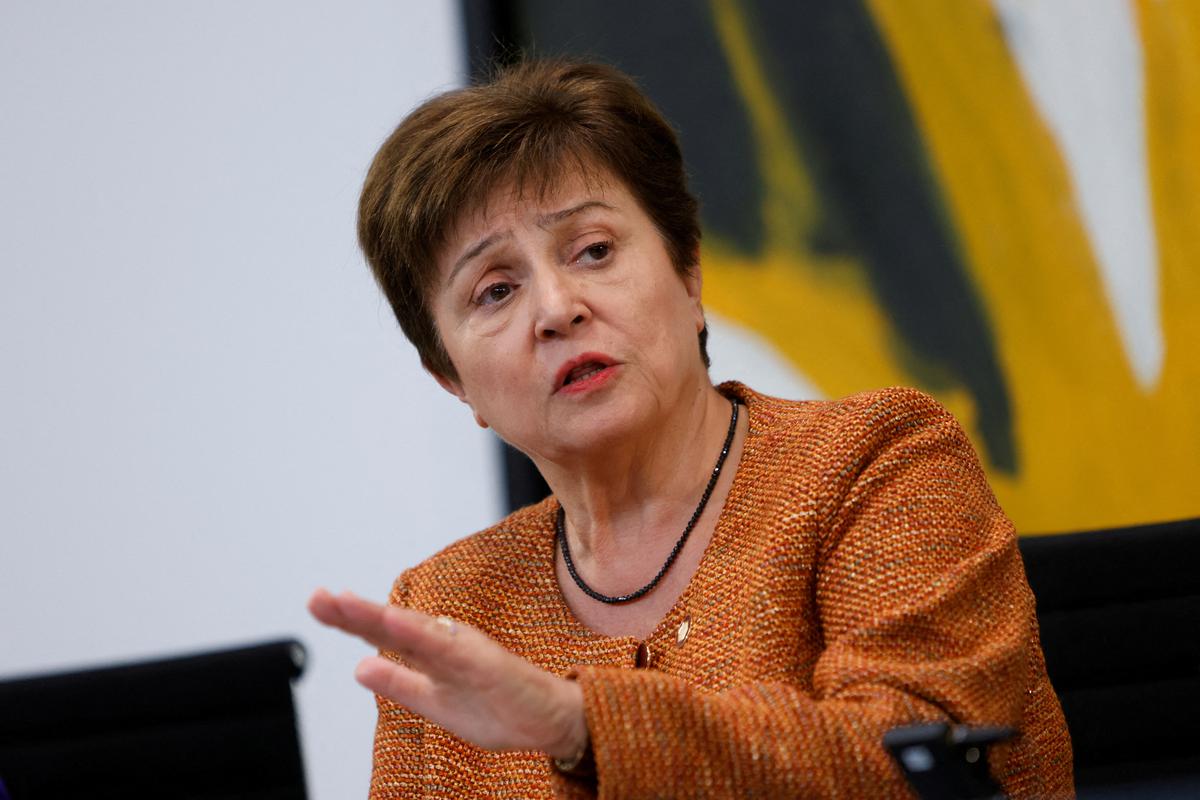This year, according to the IMF chief, a third of the world is in a recession
A third of the global economy will experience a recession this year, according to the IMF chief.
According to Kristalina Georgieva, 2023 will be “tougher” than 2018 as the US, EU, and Chinese economies all see declines.
The turmoil in Ukraine, rising expenses, higher interest rates, and the growth of Covid in China are currently weighing on the world economy.
In October, the IMF updated its prediction for world economic growth in 2023.
We expect that one-third of the global economy will be in recession, Ms. Georgieva said on the CBS television programme Face the Nation.
Even in countries that are not in a recession, it would seem like one to hundreds of millions of people, she continued.
An economist at Moody’s Analytics in Sydney named Katrina Ell provided the BBC with her global economy analysis.
“While our baseline assumes that there won’t be a global recession in the coming year, the likelihood is uncomfortably high. However, the US is on the edge of collapse and Europe will not escape the recession “She spoke.
The conflict in Ukraine and increased interest rates as central banks around the world strive to control inflation caused the IMF to alter its prediction for global economic growth in 2023 in October.
Since then, China has abandoned its zero-Covid policy and started to reopen its economy despite the significant increase in coronavirus infections across the country.
Ms. Georgieva projected that China, the second-largest economy in the world, would likely have a challenging start to 2023.
She predicted that the coming months would be difficult for China, which would have a detrimental effect on the country’s progress and that of the region and the entire world.
One hundred ninety nations make up the IMF, an international organization. They cooperate to stabilize the world economy. One of its most crucial responsibilities is acting as a system for early economic warning.
The remarks made by Ms. Georgieva will worry people all across the world, especially in Asia, which had a rough year in 2022.
Because of the conflict in Ukraine, inflation has been slowly increasing throughout the area, and higher borrowing rates have also hurt consumers and businesses.
Data made public over the weekend indicated that the Chinese economy would be weak towards the end of 2022.
According to the official purchasing managers’ index (PMI) for December, manufacturing activity in China fell for the third consecutive month and at the fastest rate in three years as coronavirus infections spread throughout the country’s industries.
In the same month, housing prices in 100 cities decreased for the sixth consecutive month, according to a survey conducted by China Index Academy, one of the nation’s biggest independent real estate research businesses.
In his first public statements since the policy change, President Xi Jinping on Saturday urged more effort and cooperation as China enters a “new chapter.”
Because of the US economy’s slump, there is also reduced demand for goods created in China and other Asian nations like Thailand and Vietnam.
Because borrowing is more expensive and interest rates are higher, some businesses may decide not to invest in growing their operations.
Investors may withdraw funds from an economy due to a lack of growth, leaving nations—particularly those that are poorer—with less money to pay for essential imports like food and energy.
A currency’s value versus that of more successful economies can decline during these slowdowns, aggravating the problem.
Governmental economies are also impacted by increased loan interest rates, particularly in emerging markets, which may find it difficult to settle back their debts.
China has been a key trading partner for the Asia-Pacific area for many years and has provided economic support during times of crisis.
Asian economies are currently dealing with the long-term financial consequences of China’s response to the pandemic.
As Beijing ceases zero-Covid, production of goods like Tesla electric vehicles and Apple iPhones might resume.
However, just when inflation seemed to have peaked, rising demand for commodities like oil and iron ore was likely to drive up prices much further.
“China’s loosened domestic Covid regulations are not a solution,” At least through the March quarter, the changeover will be difficult and a cause of instability “said Ms. Ell.
The IMF’s warning served as a wonderful wake-up call, according to Bill Blaine, strategist and head of alternative assets at Shard Capital.
On the Today programme of BBC Radio 4, he said, “We are not going to see interest rates fall as quickly as the markets expect.” Even though labour markets are largely stable around the world and jobs are typically being produced but aren’t well-paying, there will be a recession.
The author predicts that this will have a variety of impacts that “will keep markets on edge for at least the first half of 2023.”
